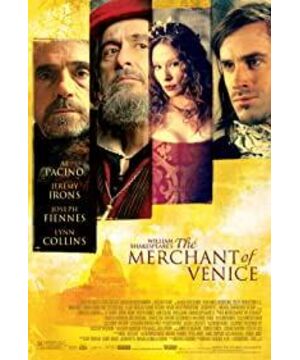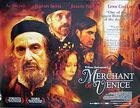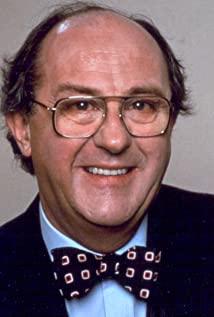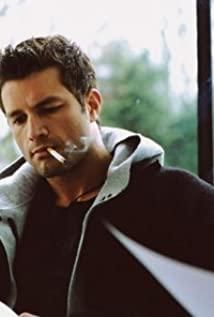Sherlock, what an ugly character. Profit-only, cruel, tyrannical, cold-blooded Jewish businessman who exploits the blood and sweat of others by lending usury. Al Pacino has long loved Shakespeare. The play finally tasted the long-cherished wish. After an addiction to Shakespeare. As far as this play is concerned, I would like to ask, is Shakespeare made Pacino or Pacino reinvented/restored Shakespeare? It can be answered that the two have long been brilliant and unique in their respective fields. Needless to say, Shakespeare. Al Pacino’s films are always impressive. From "The Wharf" to "The Last Tango in Paris" to "The Godfather", Marlon Brando always gave me a sense of separation. It's not because of his improper acting skills, but his characteristics and character style that make me uncomfortable. As far away as the other side of the ocean. (Maybe I still can’t appreciate this character, this kind of role.) And from the early days of "The Godfather", the handsome British military and the godfather of Mike Kryon, the hesitating and fearful bank robber in "The Hot Day Afternoon", to the later period of "The Godfather" An alternative lover who tries to sympathize with her lover’s retreat in "Dawn of the Love Owl", the Satan who overpowers Keanu Reeves in "The Devil’s Advocate", and the violent retired veteran in "Scent of a Woman", Ai The role played by El Pacino always leaves an unforgettable mark. The iconic passion speech was also staged twice in "The Merchant of Venice". One is to accuse Christians of unprovoked false accusations against Jews, and the other is the brief and powerful bursts of revenge and anger in court. Al Pacino shows us a brand new Sherlock, a living Jewish businessman with flesh and blood, hatred and love. The classification of "The Merchant of Venice" as a comedy is a great irony! We have been deceived by textbooks for too long, or have we been deceived by Shakespeare too deeply?
It may be surprising to say that "The Merchant of Venice" is an out-and-out tragedy, but after watching this film, we have to say so. Sherlock, a contradictory angle, did not cause contempt or disgust, but deep compassion and sympathy. What I saw was his helplessness and helplessness. It seems that the elegant, noble, and courteous Antonio, why didn't he give a one-word explanation for his insulting and framing of personal attacks on Sherlock? And always hesitating and silent? Sherlock's tragic fate is that every step of his life trajectory is destined, and he has no choice but to act helplessly. The gracious and kind Antonio may not treat non-Christians as his own kind. Even in the process of borrowing money for Bassanio, he has never respected Shylock for a moment. He bowed his head and bowed his knees, first to help a friend borrow three thousand gold coins, and later to ask Sherlock's men to be merciful and let him go. When did he respect Sherlock's personality?
Let us imagine that a person has been receiving unreasonable abuse and humiliation from people around him, and even being spit on his clothes from time to time (the other party is still a humble gentleman, a devout Christian), and he can only endure everything silently for decades. Humiliation, one day, this Christian, a man who had never respected his personality, came to borrow money from himself. And he did not sit back and watch. When signing the contract, he half-jokingly satisfies his own self-imagination out of his long-standing resentment to take a counter-attack against the self-righteous noble who has long mentally despised him. (The accident on Antonio's ship was purely accidental). Therefore, Sherlock did not intend to seek revenge in the first place. Then, an accident happened. First, the daughter eloped with the Christian, and then Antonio's boat had an accident. Where did his terrible anger in the court come from? The humiliation he has endured silently for a long time has been despised and looked down upon. Now, his opportunity has come. He wants to accuse him of all the humiliation he has suffered throughout his life. Earlier, he yelled that Jews and Christians are equally human, with flesh and blood and affection, but Christians never regard Jews as human beings. This time, in court, he questioned that people could arbitrarily execute slaves he bought with money, but he could not take away the pound of Antonio he bought with three thousand gold coins. These two passionate accusations of blood and tears were almost impeccable, leaving people speechless. Because what he said is true. It was not so much revenge that overwhelmed him. It is better to say that I want to take the only opportunity in my life to defend my dignity as a human being and defend my personality. If Sherlock silently tore up the contract at the beginning, as long as he was late, would the people of Venice, Christians, Antonio, be grateful for him? I do not believe! People will abuse him as always and hate him for no reason. Just because he is a Jew, just because he has interest-bearing loans.
The most elegant Antonio who is truly treacherous, embezzling money, he never disdains. But this kind of falling into the hole to take advantage of people's danger is the most hateful and most despicable. If he rejects half of Sherlock's estate, he does show his kindness and generosity. Then, to take this opportunity to force a Jew to convert to Christianity would be too despicable. And in a disguised way, Sherlock was forced to recognize the fact that his daughter had married a Christian and converted to Christianity and betrayed Judaism. Perhaps this is a living example of Christianity's unscrupulous attack on Judaism in history.
I hate Antonio in this play. There are two reasons:
1. How did Antonio, who was so polite and elegant from beginning to end, spit on people with slander, slander and abuse? Even if I exhaust my imagination and use the worst malice to speculate on his hypocrisy, I can't link this benevolent face to these words and deeds.
2. Take advantage of the danger of falling into the hole. When Sherlock had no choice but to force him to give up his faith and convert to Christianity.
I don't agree with Sherlock's revenge behavior. But I can fully understand him. Understand his anger, feel his hatred. I just feel that if you want to blame, you first blame the hostile external environment that caused him so resentful. If you want to say sin, everyone in Venice can't escape the sentence. I really want to incarnate in Christ, appear in court, and roar: Who among you is not guilty?
View more about The Merchant of Venice reviews











